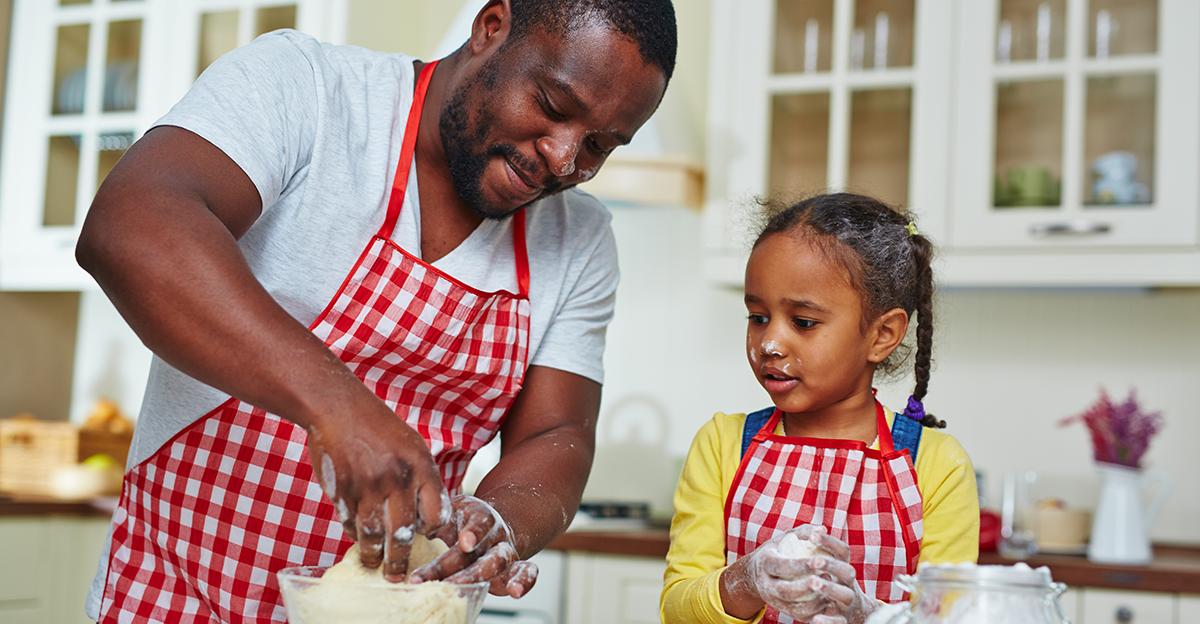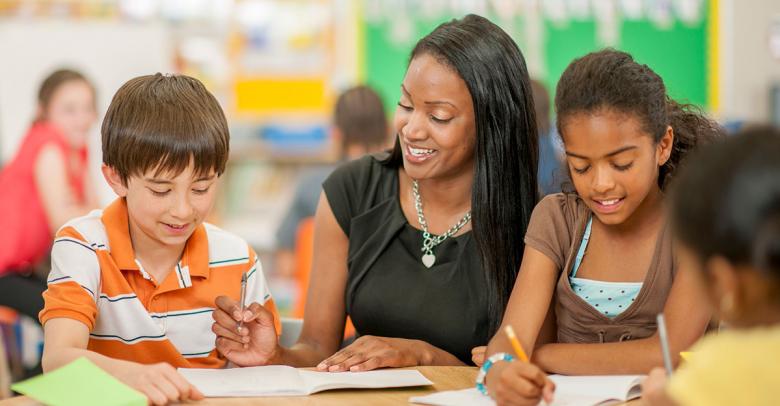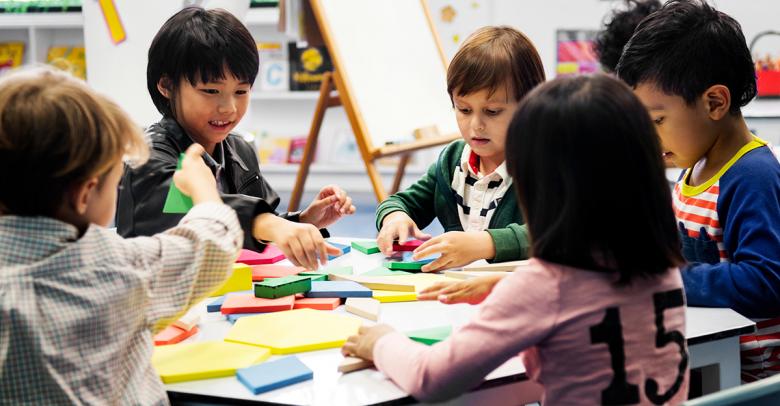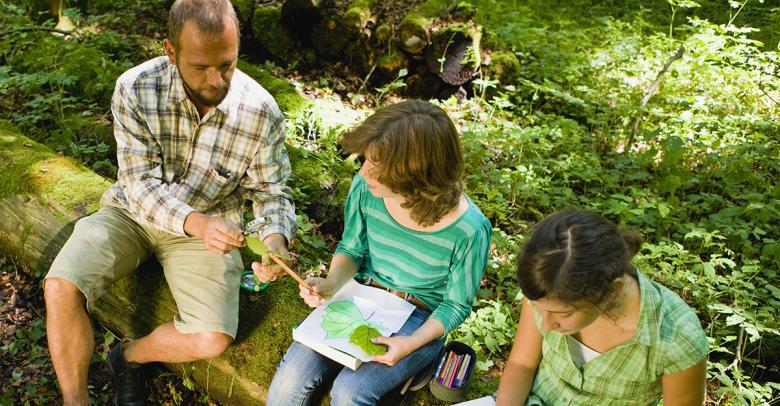By: Megan Finesilver, M.Ed.
When was the last time you ate a home-cooked meal? According to a Market Watch survey, 28% of adults stated they do not know how to cook. With this sad statistic, instilling cooking knowledge at an early age becomes imperative. The costly price, along with the health risks associated with regularly eating out, can be remedied by basic cooking lessons at an early age. Not only will this knowledge be helpful to keep active hands busy, but it will also help strengthen math, science, and reading skills.
Math: As Easy As Pie
What is your child’s favorite dessert—cake, pie, maybe cookies? Children will be more involved and excited when they can look forward to the end result. Baking these treats from scratch incorporates math without children even realizing it. Demonstrate proper measuring and then allow children to try themselves. Teaching the differences between cups, 1/2 cups, tablespoons, and teaspoons is a skill utilized when following any recipe. Your countertops may not be as clean as when you make them yourself, but the experience for a child is invaluable.
Reading & Writing & Recipes, Oh My!
If you cook the sugar and eggs in the oven before mixing in the flour and oil, will the cookies be edible? What if the sauce is added to the pasta before boiling and draining the linguini? Reading and following steps are important, if not imperative, when following a recipe. Teaching children to read (or listen) and follow directions in the correct order translates to better test-taking skills and a deeper understanding for the order of events.
Writing down Grandma’s crepe recipe or your uncle’s secret BBQ sauce is a great way to help carry on family traditions and incorporate real to life writing practice. If a child cannot write yet, encourage drawing the ingredients next to the words. Creating visuals will help to remember the recipe, all while strengthening a child’s vocabulary and writing skills.
Cooking Chemistry
Chemical processes are constantly happening in the kitchen! Noodles soften, cakes rise, and combinations of spices create a new savory taste. Cooking successfully requires an understanding of chemistry. Failures, such as opening the oven while baking a cake, overcooking veggies, or adding too much garlic to a stir fry dish, are memorable experiments in food chemistry.
Once, I accidentally instructed my 2nd graders to add baking soda instead of baking powder to the pancakes we were making. I turned my embarrassment into a teachable lesson on measuring and reading directions carefully. Hopefully, the lesson resonated with them as much as it has with me. These cooking triumphs and failures need to be experienced to be understood. When a child successfully conquers the chemistry of a delicious meal, they’ll appreciate the tastes, textures, and smells of their creation so much more than the contents of a take-out container.
A Can-Do Attitude
Even when it’s messy, scary, or impossible, children desire independence. Parents and teachers constantly hear the familiar phrase, “I can do it,” from children. Why not put this self-confidence towards creating something delicious?
Practice in the kitchen decreases summer regression and provides applicable skills for the classroom and beyond. Reduce the statistic, increase the independence, and enjoy the fruits (or veggies, or grains) of their labor!






[…] Read More: Extending Learning in the Kitchen […]